THE GULF STATE of Qatar is small but exceptionally rich and uses its money relentlessly to acquire friends and influence. The recipients of its largesse have been many and various, from Bill Clinton’s charitable foundation in the United States to the Muslim Brotherhood and other Islamist groups. But while there have often been complaints about Qatar’s support for militant Muslims its dubious links with non-Muslim religious groups have largely gone unnoticed.
Over the last decade Qatar has been working quietly with socially-conservative elements in the west to promote "traditional" ideas of family life. In doing so it has readily joined forces with Mormons and the more reactionary parts of the Roman Catholic church. It has also helped fund a right-wing think tank set up by a former leader of Britain's Conservative Party.
In turn, these western groups seem content to accept support from a country where polygamy is legal, where gay sex – and, indeed, any kind of sex outside marriage – is a crime, where loveless arranged marriages are not uncommon, where a husband can divorce a wife simply by saying so three times but a wife who wishes to divorce her husband must go to court.
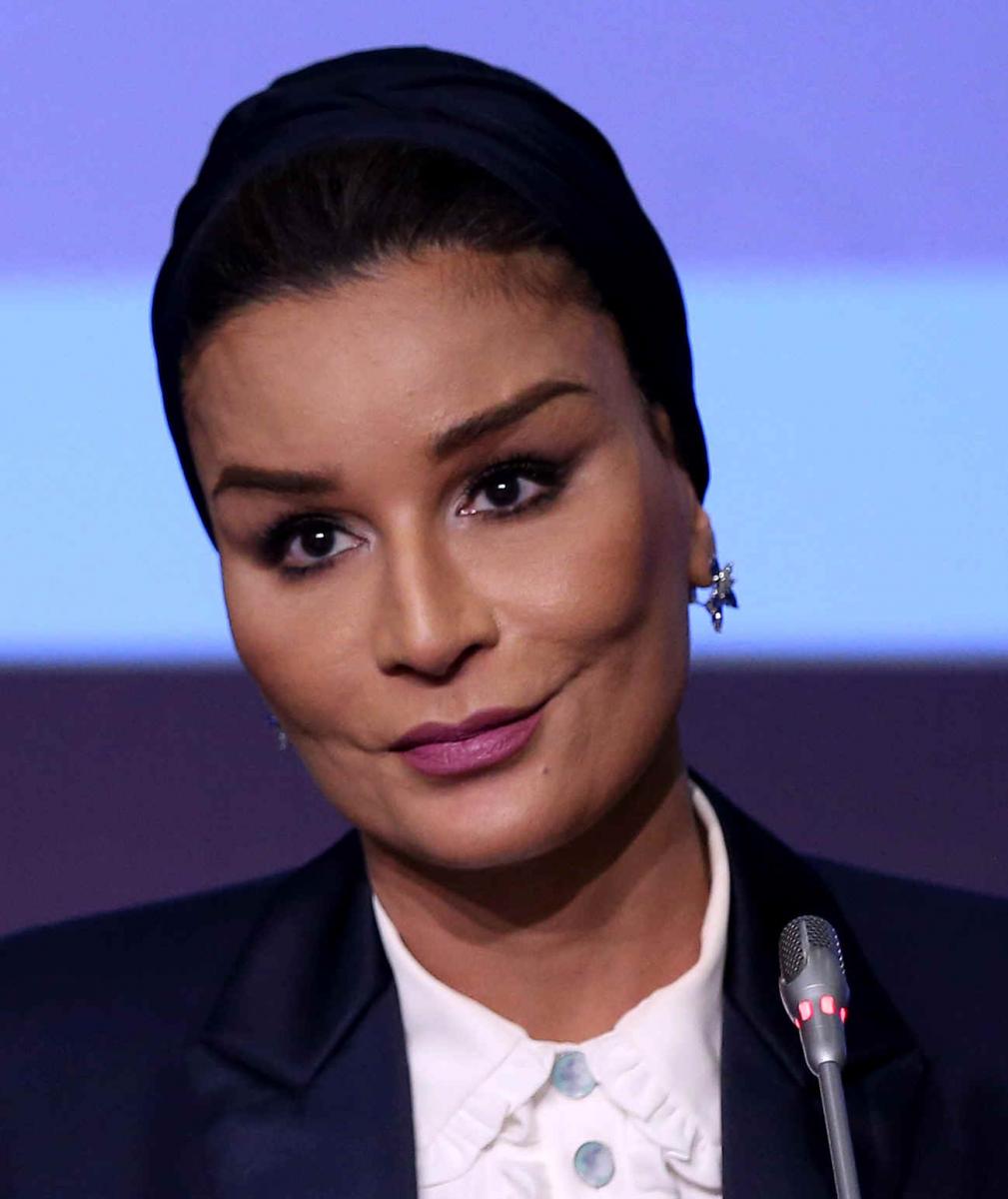
A central figure in Qatar's support for “pro-family” campaigners is Sheikha Moza bint Nasser, the most glamorous of the former Emir's multiple wives, who has served as a special envoy for Unesco and acquired a reputation internationally for her charitable work. She is an Honorary Dame of the British Empire, a member of the Académie des Beaux-Arts in France and holder of the Grand Cross of the Order of Merit in Italy.
In 2005, Sheikha Moza established the innocuous-sounding Doha International Institute for Family Studies and Development (later known as the Doha International Family Institute, or Difi for short). The man appointed to run it as executive director was Richard Wilkins, an American Mormon who had previously worked internationally in opposing liberal social policies.
This blog post is also available as a printable PDF file
Besides Wilkins, the institute had a board of governors drawn from the Middle East, Europe, Africa and Latin America. Welcoming the institute’s emergence, a Catholic website described its board members as "cross-cultural" and "representing diverse religious traditions". If their religious traditions were diverse, though, their views on family life were anything but.
The seven-person board comprised two Qataris, a Moroccan who served as adviser to Sheikha Moza, and four others from outside the region. The non-Arab members included Charles Colchester, executive director of CARE (Christian Action Research & Education), a controversial British charity which had its roots in the 1971 Festival of Light, a Christian-led protest against social "permissiveness" whose supporters included "clean-up TV" campaigner Mary Whitehouse and Cliff Richard, the singer.
CARE seeks to "engage" with politicians and influence government policy, and some of its activities were described by a scathing article in the Observer newspaper headed "Onward Christian lobbyists". "These are the new Christian soldiers," it said, "well-organised, well-funded, disciplined and committed groups of people who have assiduously courted those in power."
Besides campaigning generally against what it saw as the decline of "the family", CARE lobbied against lowering the age of consent for gay people to match that for straight people and against the repeal of Section 28 – a Thatcher-era measure which prohibited schools from "promoting" homosexuality. "To many in the gay community," the Observer article continued, "CARE's name is mud." One of those quoted – Ben Bradshaw, a Labour MP who is both gay and an active Christian – described CARE as "a bunch of homophobic bigots".
Another non-Arab on the Qatari board was Tuve Skånberg von Beetzen, a Christian Democrat member of the Swedish parliament who has opposed same-sex marriage and gay adoptions, proposed a law against blasphemy and sought to prevent "discrimination" against the teaching of creationism in schools. More recently, Skånberg clashed with his party's leader when she joined this year's Stockholm Pride parade.
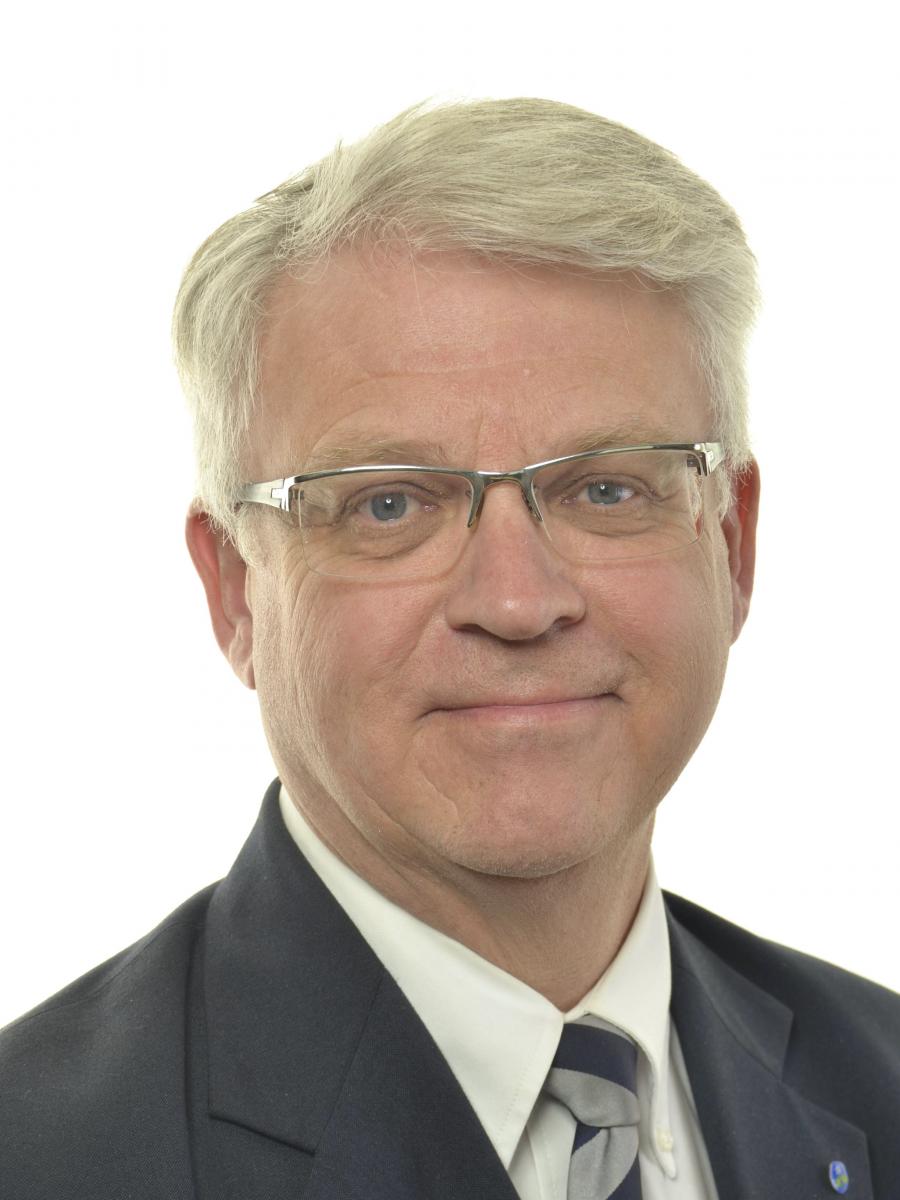
The board member from Latin America was Jesus Hernandez Ramos, founder of Familias y Sociedad, a Mexican organisation opposed to "the destruction or devaluation of the role of the family".
Hernandez had also been an organiser for the third World Congress of Families, held in Mexico City in 2004. The World Congress is a predominantly right-wing American Christian initiative which for several years worked closely with the Mormons' World Family Policy Center in Utah whose director – before his appointment in Qatar – was Richard Wilkins. When the World Family Policy Center closed down in 2008 subscribers to its now-defunct newsletter were redirected to the website of the Doha institute.
Colchester, Skånberg and Hernandez were joined on the board by Professor Matiya Semakula Kiwanuka, an academic, politician and diplomat from Uganda. It is unclear why he was chosen but a news item from 2010 describes him as a Catholic. As the father of seven children, he presumably also had ample experience of family life.
With its structure in place, the institute began organising and sponsoring conferences and workshops, and funding family-related research projects. A brochure produced by Difi (as it is now known) catalogues its “milestones” between 2006 and 2012. They included 16 events held in Qatar and seven in other Arab countries, 15 events in Europe, three in Africa and two in Latin America.
Outside Qatar, the conferences and discussion meetings were usually held in partnership with local organisations whose names often imply social concern but not necessarily a religious agenda. It takes a little digging to discover that most (though not all) have religious connections – not just any kind of religion but religion with a specific outlook on society. For example, the Strathmore Business School in Kenya – a partner for two Difi conferences on the family – sounds utterly secular but a quick check on the internet shows it’s a “corporate undertaking” of the Catholic organisation, Opus Dei.
'Pro-family' lobbying at the United Nations
IN PARALLEL with these local events, Difi was also pursuing its “pro-family” agenda at the United Nations. Its brochure lists numerous arms of the UN that it claims to have “worked with”: the UN Department of Economic and Social Affairs (UNDESA), the United Nations Population Fund (UNFPA), the UN Programme on Ageing, the UN Programme on Youth, the International Labour Organisation (ILO), the United Nations Children’s Fund (UNICEF), the Joint UN Programme on HIV/AIDS (UNAIDS), and the Office of the Special Adviser on Gender Issues and Advancement of Women (OSAGI).
To what extent Difi was working with these bodies is disputable, since its aim was not so much to assist them as to shift their focus. Its stated goal was “integrating a family perspective” in their social and economic policies and it sought to do that by “providing evidence-based research for the development of family policies”.
The point here was not merely to ensure that family issues were included in policy-making but to give the policies a "pro-family" focus. In the same way that anti-abortion campaigners like to be called “pro-life”, “pro-family” activists describe themselves in terms that imply anyone who opposes them must be anti-family. The Oxford Dictionary defines “pro-family” as “promoting family life and traditional moral values” and the moral values in this case, usually religion-based, typically include disapproval of cohabiting and divorce, along with opposition to abortion, pornography and same-sex marriage (and often LGBT rights more generally). These are attitudes that “pro-family” Christians broadly share with the more traditionally-minded Muslims.
Having Qatar – a UN member state – as an ally gave the “pro-family” activists some useful political clout on the international stage. Though Qatar itself was relatively powerless it could help deliver support from other countries anxious to hold back the advance of social liberalism through the UN and related international forums. In particular, Qatar provided a gateway to the Organisation of Islamic Cooperation (OIC) which represents 57 predominantly Muslim countries and accounts for more than a quarter of the UN’s total membership, making it a powerful bloc when it acts in unison.
While Qatar could provide money and political muscle, the contribution from “pro-family” groups was mainly in the form of expertise and brainpower, with their Qatari-funded conference papers articulating arguments and ideas, and compiling evidence to reinforce them.
This willingness to rely on western “knowledge” is a curious phenomenon in Arab and Muslim societies, because in different circumstances it would probably be regarded as a form of dependence or cultural imperialism. It’s as if a western origin provides extra credibility or perhaps some form of vindication, and it can be seen in various other fields. The growing numbers of Muslims who reject evolution, for example, often cite the arguments of American creationists, while denunciations of homosexuality frequently draw on the “research” from “ex-gay” organisations. It doesn’t seem to matter that in the west these are usually treated as fringe opinions.
Funding for Conservative politician's think tank

IAIN DUNCAN SMITH is a former leader of Britain's Conservative Party and was the minister responsible for social security in the Cameron governments of 2010-2016. In 2004, while in opposition, he set up the Centre for Social Justice (CSJ), a right-wing think tank which has had considerable influence on the party's social policies.
One of the think tank's more important reports, "Every Family Matters", demanded financial incentives for people to marry – and stay married. It proposed tax benefits for couples who marry (as opposed to just living together), and measures to discourage divorce, including a compulsory three-month cooling-off period for estranged couples. It also rejected the idea that cohabiting couples should have the same legal rights as those who are married.
The tax benefits to promote marriage became a flagship policy of the Cameron government but when introduced proved a flop. Although Cameron had claimed they would help four million couples, in the first year only 330,000 people bothered to claim – hardly surprising since the money amounted to a maximum of £3.85 (just under $5) a week.
At the time "Every Family Matters" was published no one seems to have noticed that research for the report had been sponsored by Sheikha Moza's institute in Qatar – though the institute's logo appeared on the cover. Two further reports by the Centre for Social Justice received funding from Qatar in 2011 and 2013.
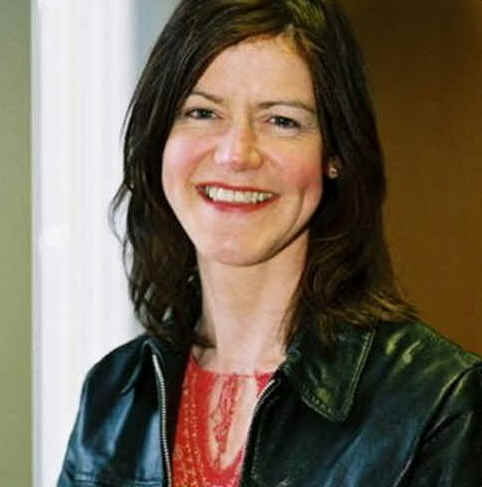
The Centre for Social Justice also has indirect links with Qatar through Samantha Callan, its associate director. Callan was formerly an adviser on family policy to prime minister David Cameron and is currently parliamentary adviser to the anti-pornography peer, Lord Farmer.
In 2006, when the centre was preparing its "Breakdown Britain" report, Callan was chairman [sic] of the "Family Breakdown" working group – one of several research groups contributing to the report. Callan's deputy in the working group was father of six Harry Benson who founded the Bristol Community Family Trust and is author of a book used by the charity Care for the Family in its "Let's Stick Together" training course for parents. Care for the Family, which receives some government funding for its course, is an offshoot of CARE and the two organisations are linked through John O’Brien who is a trustee of both.
Besides working on the Breakdown Britain report, Callan and Benson jointly edited a book, "What Works in Relationship Education? Lessons from Academics and Service Deliverers in the United States and Europe", published by the Qatari institute. The book was a collection of papers from a conference which had been jointly organised by the Qataris and Care for the Family and was attended, according to the Qataris, by “more than 50 scholars, practitioners, policymakers, NGO members, and prominent political figures”. It was held in the Jubilee Room at the Houses of Parliament, hosted by Andrew Selous MP, a prominent member of the Conservative Christian Fellowship and erstwhile chair of the All Party Parliamentary Group on Strengthening Couple Relationships.
The institute has also funded research in Britain by the Relationships Foundation into the "connection between personal development, quality family relationships and public benefits" and by the Youth Research Forum into "the development of the moral compass" in children.
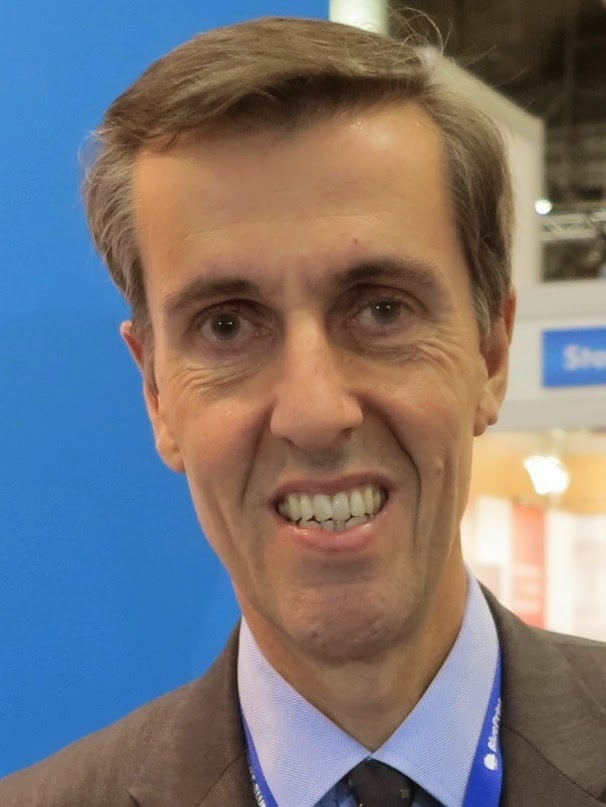
Richard Wilkins and a 'miracle' in Istanbul
TEN YEARS before taking up his post at the institute in Doha, Richard Wilkins had spotted the potential for blocking liberal policies when "pro-family" activists and socially-conservative countries worked hand in hand. Wilkins, who taught law at the Mormons' Brigham Young University (BYU) and served as a bishop in the Mormon church, travelled to Istanbul in 1996 for a UN conference called Habitat II.
Primarily, the conference was about housing – "ensuring adequate shelter for all and making human settlements safer, healthier and more liveable, equitable, sustainable and productive," as the UN put it. But the discussion of desirable living conditions also raised questions about the nature and needs of families.
"The Istanbul conference," Wilkins later wrote, "was convened in large measure by a worldwide, well-organised and well-funded coalition of governments, politicians, academicians and non-governmental organisations that were eager to redefine marriage and family life.
"Natural marriage, based on the union of a man and a woman, was described by professors, politicians and pundits as an institution that oppressed and demeaned women. The constant claim was that 'various forms of the family exist', and all 'various forms' were entitled to 'legal support'. The 'form' most often discussed by those in charge of the conference was a relationship between two individuals of the same gender."
Wilkins, who was introduced to the conference as "a representative of international law and the family", gave a seven-minute speech in which he highlighted the problem of teenage pregnancies and advocated "a family-based sexual abstinence approach" to solving it.
After finishing his speech Wilkins was approached by the ambassador from Saudi Arabia who, he recalled, embraced him warmly and asked "What can we do?" Wilkins responded by giving the ambassador a list of suggested changes to the official draft of the conference report.
"Thirty-six hours later, the heads of the Arab delegations in Istanbul issued a joint statement, announcing ... that its members would not sign the Habitat agenda unless (and until) certain important changes were made," Wilkins wrote. As a result, the draft was altered to define marriage as a relationship between husband and wife, and references to "abortion" were changed to "reproductive health".
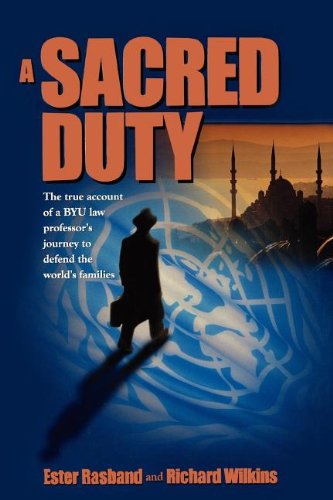
Wilkins – who co-authored a book about his exploits, "A Sacred Duty: The True Account of a BYU Professor's Journey to Defend the World's Families" – possibly exaggerated his own part in what became known as the Istanbul Miracle. According to another account, from an anti-abortion campaigner, "pro-lifers" had also turned up at the Habitat conference en masse:
"There were about 60 pro-life lobbyists in Istanbul, from every continent. An office was set up in a hotel room with a copy machine (over 30,000 copies were made), computer, fax, desk-top publishing, etc. John Smeaton, from the Society for the Protection of the Unborn Child in London, guided the pro-life activity. Every night, at different secret locations, all available pro-life lobbyists met to plot strategy for the next day, and to pray together."
Regardless of Wilkins' actual role, the Habitat conference made a lasting impression on him and shaped the course of his future activities.
UN conferences, he wrote, "have been accurately perceived as significant international law-making events. They have also followed a predictable (and extreme) ideological course primarily championed by a powerful lobby that, according to one scholar, 'ha[s] marginalised parents, ignored the family, and denigrated cultural and religious values'. What made the Istanbul conference remarkable was that it departed from this set course."
As a result of Istanbul, Wilkins wrote, his life changed dramatically: "I became a serious student of international law. I attended dozens of international negotiations on issues related to family life. I studied and wrote scholarly papers on numerous novel developments in international law ... I organised international conferences, including the second World Congress of Families, to help people around the world understand both international law and the threats it posed to family life."
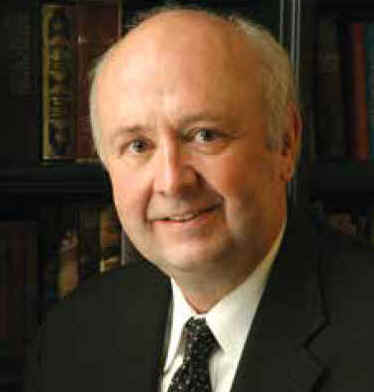
Towards the end of 2004, Wilkins found himself organising yet another international conference about families – this time in Qatar on behalf of Sheikha Moza. Ostensibly, its purpose was to celebrate the tenth anniversary of the UN's Year of the Family though its actual goal was to insert some "pro-family" spin into discussions at the UN General Assembly.
Sheikha Moza opened the conference with a warning against trying to "redefine the concept of family in a manner contrary to religious precepts". Others in attendance included Yusuf al-Qaradawi, the controversial Islamic theologian who approves of wife-beating (in moderation) and is linked with the Muslim Brotherhood, the late Cardinal Alfonso Trujillo, who campaigned against condoms on behalf of the Catholic church, and Mahathir Mohamad, the former prime minister of Malaysia who had sacked and jailed his deputy for alleged homosexuality.
The main outcome of the conference was the Doha Declaration – a document which called upon "all governments, international organisations and members of civil society at all levels to take action to protect the family". It also welcomed an announcement by Sheikha Moza of plans to create "an international institute for study of the family" (i.e. Difi).
The final paragraph of the declaration requested Qatar's government "to inform the United Nations General Assembly of the proceedings of the conference, including the Doha Declaration".
When this reached the General Assembly, however, the EU countries – along with Norway, Switzerland, Canada, Australia, Iceland, Liechtenstein and New Zealand – were reluctant to accept it. The New Zealand representative pointed out that it was highly unusual for the General Assembly to pass resolutions based on conferences (such as that in Qatar) to which not all member states had been invited. The General Assembly was being used, he said, to attack a long-standing international consensus on the diversity of family structures and the advancement of women and children's rights. It was also seeking to promote one model of the family at the expense of others.
But Wilkins was already prepared and, just before the UN debate, sent out an SOS "to pro-family government and non-government contacts throughout the world", according to the Mormons' Meridian magazine. "You responded to the SOS by answering our alert to email targeted UN missions that could make the difference on the resolution," the magazine told its readers. "Even though it was over the weekend, with only one day's notice, you responded by sending more than 70,000 emails."
In the end, Qatar got a brief and cursory mention in the General Assembly's Resolution 58/15 which welcomed its hosting of "an international conference to celebrate the tenth anniversary of the International Year of the Family". The following day, Qatar's chargé d’affaires sent a letter to the UN secretary-general asking to have the Doha Declaration circulated "as a document of the General Assembly". On that basis, the text of the declaration posted on Difi's website now carries a flag describing it as an "official UN document".
Sponsorship with a religious agenda
ALTHOUGH the Qatari institute does not appear to have sponsored any conferences in the United States it did provide fellowships for American two professors – Lynn Wardle of the Mormon-run Brigham Young University in Utah and Scott FitzGibbon of Boston College Law School. The funding allowed them to establish the "International Academy for the Study of Jurisprudence of the Family" and an associated online journal, the "International Journal of the Jurisprudence of the Family".
Qatar also funded publication of a book produced by the Mormons' Family First Foundation. With an introduction by Sheikha Moza and a foreword by the Mormon Richard Wilkins, it had contributions from "pro-family" activists in various parts of the world. The book, entitled "Family and the MDGs: Using Family Capital to Achieve the Millennium Development Goals", is currently ranked at number 10,864,582 in Amazon's best-seller list.
Two other recipients of Qatari largesse in the US were the Catholic University of America in Washington DC and the Public Policy Research Institute at Texas A&M University (which also has a controversial satellite campus in Qatar's Education City).
Between 2008 and 2012 the Qatari institute organised or sponsored at least 15 events in Europe. Aside from those in Britain mentioned above, there were three in Slovakia, two each in Belgium, Malta and Sweden, plus others in Norway, Italy and Croatia:
Slovakia, September 2008: Qatari-sponsored conference organised by the Catholic University of Ružomberok “to emphasize the social responsibility of all media outlets regarding the promotion of family values”. Its patron was the First Lady of Slovakia, Silvia Gašparovicová.
Slovakia, October 2008: Conference on the rights of families and children as set out in the Universal Declaration of Human Rights. Organised by the Qatari institute “in cooperation” with the Paris-based Institut Sephoris, an organisation dedicated to “strengthening the unity and stability of the family unit”.
Croatia, October 2009: International conference on “coping and resilience” organised by the Brisbane Institute of Strengths Based Practice. The Qatari institute was one of its four sponsors, along with the Australian government through its AusAID programme.
Malta, October 2009: Conference on “The Shaping of Healthy Marriages” organised by the Qatari institute in collaboration with the Cana Movement, a Catholic organisation, and the University of Malta’s Institute of Family Studies. It was attended by Malta’s president, the prime minister’s wife, members of parliament and “more than 60 scholars and policymakers”. According to the Qataris, the proceedings of the conference “were formally recognised by the government of Malta and integrated into the Maltese family development plan”.
The conference papers were later published as a book which received public endorsements from a professor at the Mormon university in Utah and Samantha Callan at the Centre for Social Justice in London.
At the time, staunchly Catholic Malta was one of only three states worldwide (along with the Philippines and the Vatican City) which did not allow divorce. This was eventually changed by a referendum in 2011.
Slovakia, May 2010: Conference on “Jurisprudence of the Family” jointly organised by the Qatari institute, the Mormon-linked (and Qatari-funded) International Academy for the Study of Jurisprudence of the Family and the Bratislava School of Law.
Italy, September 2010: Fifth Congress of the European Society on Family Relations, organised by the Catholic University of the Sacred Heart and co-sponsored by the Qatari institute.
Sweden, May 2011: Qatari-sponsored event to mark the International Day of Families, held in the Swedish parliament building and organised by the Clapham Institute, a Christian think tank founded by a prominent evangelical, Stefan Gustavsson. According to the Qataris, the discussion “enlightened 35 Swedish parliamentarians and members of civil society regarding current challenges facing Scandinavian families”.
Belgium, June 2011: Event to mark the 20th anniversary of the International Year of the Family, where the Qatari institute was partnered, once again, with the Paris-based Institut Sephoris. According to the Qataris, “about 70 representatives of civil society, the European Parliament, and the European Union attended … and recommendations from this event fed into future policy debates as part of the EU’s celebration of the European Year for Active Ageing and Intergenerational Solidarity”.
Malta, July 2011: Symposium on the jurisprudence of parenting, hosted by the University of Malta and jointly organised by the Qatari institute, the Mormon-linked International Academy for the Study of the Jurisprudence of the Family and the Marriage and Family Law Research Project.
Sweden and Norway, October 2011: Seminar on “Human Rights and Conscience Rights”, organised by the Qatari institute in collaboration with the Swedish parliament’s Forum for the Family and Human Rights. “Members of Sweden and Norway’s parliaments, members of other Scandinavian parliaments, NGO leaders, and scholars in relevant fields attended the seminars,” according to the Qataris.
Belgium, June 2012: Expert group meeting on family poverty and social exclusion, organised by the Qatari institute in collaboration with the International Federation for Family and Development (IFFD), the UN Programme on the Family, and the EU Committee of Regions.
While most of the Qatari-funded conferences and research projects seem to have involved people with a religious agenda, there were some exceptions. The Youth Research Forum, a small think tank in Britain, was eager to study the "moral compass" of children – their ideas about right and wrong and how those ideas develop as they grow up. Surprisingly, this was an area where there had been scarcely any research.
Glen Smith, the organisation's chair, recalls that it was becoming increasingly difficult to get funding in Britain and so, at the suggestion of "colleagues who had connections", he contacted the Qatari institute.
"I approached them originally to see if they would be interested, and they were. They agreed to do it. They thought it was a good study," he said in a telephone interview. "I wrote the questionnaire [for the survey] without any consultation with anyone, which is the usual purist way I work. I sent the questionnaire for approval and they approved it instantly."
The survey itself was overseen by Nick Winkfield, formerly a partner in the polling firm Mori, who happened to be a committed humanist. One of the study's more interesting findings was that there is "no clear relationship between religious upbringing and the development of moral behaviour" and Winkfield made a point of including Andrew Copson, chief executive of the British Humanist Association, among speakers for the launch of the report.
This was probably not what the Qataris had been expecting but if they were disappointed with the findings they didn't say so. They were shown the report ahead of its publication and, according to both Smith and Winkfield, voiced no objections. "I think they fully embraced it, and they were very good clients actually," Smith said. Asked how much the Qataris paid, he said he could not remember but "it wasn't inconsequential".
Separately, the Qataris also splashed out on an event to launch the "moral compass" report, with Wilkins and others from the institute flying over from Qatar for the occasion. "They had it done by a very good practitioner called Neil Stewart," Smith said. "He has been the brand leader in conferences and seminars and so Neil set it up in a very large Westminster studio. It was also live on the Net as well."
According to Winkfield, though, there had been plans for taking the research further which never came to fruition. At one point the Qataris had seemed very interested in repeating the survey among children in Qatar and possibly the United Arab Emirates, he said. "It was part of the initial plan, in fact, but it came to a halt because [the Qataris] said their funding was being cut back. Possibly they just felt dissatisfied with what they had heard because [the report] didn't make their point, but they never actually said that. They accepted the report and then there was silence."
The Middle East's family problem
IN QATAR, as in Saudi Arabia, the dominant strand of Islam is Wahhabism – conservative and puritanical – but there are significant differences between the two countries. For many Saudi religious scholars, the idea of publicly collaborating with other faiths for a shared purpose is anathema. In that respect the Qataris, who like to be viewed as modern and open to the world, have been smarter and have reaped the benefits. Where sexual ethics are concerned there is a lot of common ground between conservative Christians and conservative Muslims. But ethics are not the only issue: it's important to also consider the social and political implications of uncritical support for "the family".
What the Qataris and their western allies share is a somewhat nostalgic attachment to "traditional" family values which they view as the key to a well-ordered society. What they are less willing to recognise, though, is that these same values can – and often do – have extremely negative consequences, especially in the Middle East. The importance traditionally attached to blood ties has caused enormous damage in most of the Arab countries and, along with discrimination against women, it is one of the biggest obstacles to equality of opportunity. Quite apart from the injustice of that, the common practice of appointing people to jobs in government and business on the basis of family connections rather than ability leads to mediocrity and often incompetence.
Bahrain, Jordan, Kuwait, Morocco, Oman, Saudi Arabia, the UAE and, of course, Qatar have all been ruled by the same families since their creation or independence. Lebanon is basically a gangland-style carve-up among a bunch of families – the zu'ama' – while in places like Yemen and Iraq politics is shaped more by kinship ties than arguments about policy.
Although nuclear families are increasingly common in Arab countries, older kinship systems persist in the more traditional areas: beyond the immediate and extended family is the clan (ashira) comprising those who share a common ancestor or family name, and beyond that, the tribe (qabila). This can be protective in some ways and oppressive in others.
In the days before policing, tribal solidarity gave communal protection – and still does in some places. Even today, it can sometimes offer the best hope for resisting unjust decisions by rulers. But tribal loyalty also leads to favouritism where other members of the tribe are concerned and discrimination against those from other tribes – to the extent that it may even prevent someone from marrying the partner of their choice.
In areas where tribal identity matters, this also leads to a kind of politics based more on tribal affinities than differences over policies. In a research paper published this week, for instance, Justin Gengler noted that electoral results in the UAE, Oman and Qatar "tend to follow patterns of family and tribal settlement":
"A study of Qatar’s 2015 municipal council elections found that the single greatest determinant of both voter registration and the act of voting itself was the number of candidates from the same family or tribe running in an individual’s district."
As with the tribes, traditional Arab families are both supportive and demanding. Support from relatives is especially important in countries where the state doesn't provide much of a safety net but the more traditional a family is, the more likely it is that key life-choices such as careers and marriage partners will be decisions taken by the family, or perhaps just its paterfamilias, rather than the individual concerned. This is a major source of grievance among young Arabs. In return for the family's support, all members are obliged to uphold its reputation, or "honour", and in the more traditional families anyone who besmirches its name – usually a woman who has transgressed sexually – is liable to be killed.
Another characteristic of this kind of family – and a valuable one if you happen to be the autocratic ruler of a Gulf state – is that it inculcates obedience. In the traditional Arab family, Halim Barakat, the Syrian-born sociologist, wrote, the father sits at the top of a pyramid of authority and requires “respect and unquestioning compliance with his instructions”. Arab society, he added, “is the family generalised or enlarged, and the family is society in miniature.” In political terms, it can also be said that the traditional family is a microcosm of the Arab state, and that the Arab state is the family writ large.
Aside from religious considerations, both the Qataris and the conservative Christians view support for "the family" as a way of maintaining a stable society. What the Christians seem not to have recognised so far is that in the Middle East it's also about maintaining an iniquitous status quo.
Liaisons dangereuses at the UN
RICHARD WILKINS left Difi early in 2012 and died a few months later. Since then, Difi has shifted its focus more towards developing family policies in the Middle East and says its aim now is "to be recognised as a global knowledge leader on issues facing the Arab family". Among other things, it offers a $50,000 annual research grant which is open to applicants from any Arab country.
But that has not brought a halt to Qatar's "pro-family" activism at the UN; if anything, it has become more organised with the formation of a new alliance called "Group of Friends of the Family" (GoFF). Its inaugural meeting, organised by Belarus, Qatar and Egypt, took place last year at the UN headquarters in New York and currently 25 states are listed as members: Bangladesh, Belarus, Comoros, Egypt, Indonesia, Iran, Iraq, Kuwait, Kyrgyzstan, Libya, Malaysia, Nicaragua, Nigeria, Oman, Pakistan, Qatar, Russia, Saudi Arabia, Somalia, Sudan, Tajikistan, Turkmenistan, Yemen, Uganda and Zimbabwe.
GoFF also appears to have backing from the 57-member Organisation of Islamic Cooperation, the 54-member African Union and the Holy See, plus a host of "pro-family" pressure groups. The inclusion of Russia among the list of GoFF members points to an emerging trend where opposition to progressive social policies is also coming from countries motivated more by nationalist sentiment and demographic concerns than religion.
GoFF's opening shot at the UN came in February this year when, at the instigation of Belarus, Egypt and Qatar, it demanded the withdrawal of some UN-issued postage stamps which celebrated LGBT rights with the slogan "Free and equal". The OIC and the African Union also objected to the stamps.
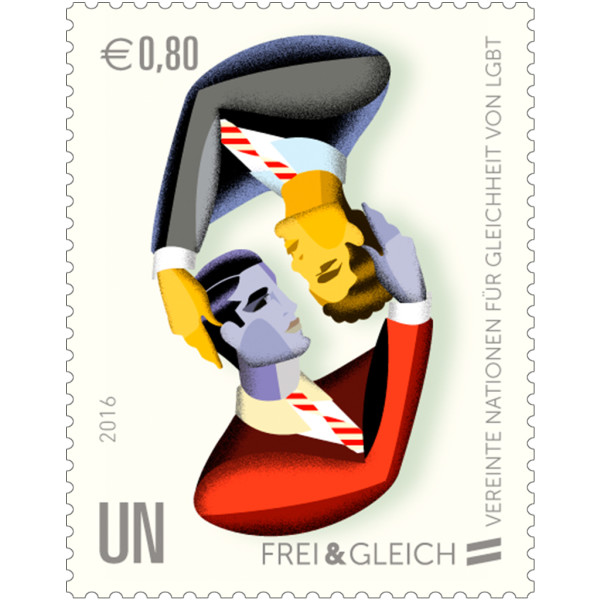
The US-based Center for Family and Human Rights (C-Fam) reported: "Earlier this month countries stood by helplessly as UN bureaucrats presented a series of UN postage stamps that depict homosexuality, transsexualism, and homosexual 'parenting' at UN headquarters to great fanfare and expense in an eccentric ceremony featuring an all male 33 member strong gay chorus singing love songs and show tunes against a backdrop of naked dancers and Greek gods."
According to C-Fam, Ban Ki-moon at first ignored protest letters from ambassadors and then dismissed their complaints: "Predictably the Secretary General, a vociferous proponent of social acceptance of homosexuality, denied any accusations of wrongdoing and overreach, and called the roll-out of the stamps 'in line with the mandate' of the UN Postal Administration."
Last May, in collaboration with several American "pro-family" groups, GoFF organised an exhibition of photographs at the UN headquarters under the title "Uniting Nations for a Family Friendly World". Ostensibly this was to mark the UN's International Day of Families on May 15 but – perhaps to make a jibe at LGBT rights – the opening ceremony actually took place two days later, on May 17 which happens to be the International Day Against Homophobia, Transphobia and Biphobia (IDAHOT).
Meanwhile, CitizenGo – a Spanish-based online platform for right-wing Christian activism – decided that GoFF deserved a show of public support. The website, which has previously organised petitions against same-sex marriage, abortion and transgender rights, announced a letter-writing campaign to encourage "the 25 brave governments" that had joined GoFF. It reminded readers of their names – Iran, Russia and Saudi Arabia among them – and said: "Let’s show these courageous countries that thousands of good people across the world have taken notice of their important family initiative at the UN and that we stand behind them 100 percent."

 RSS Feed
RSS Feed
